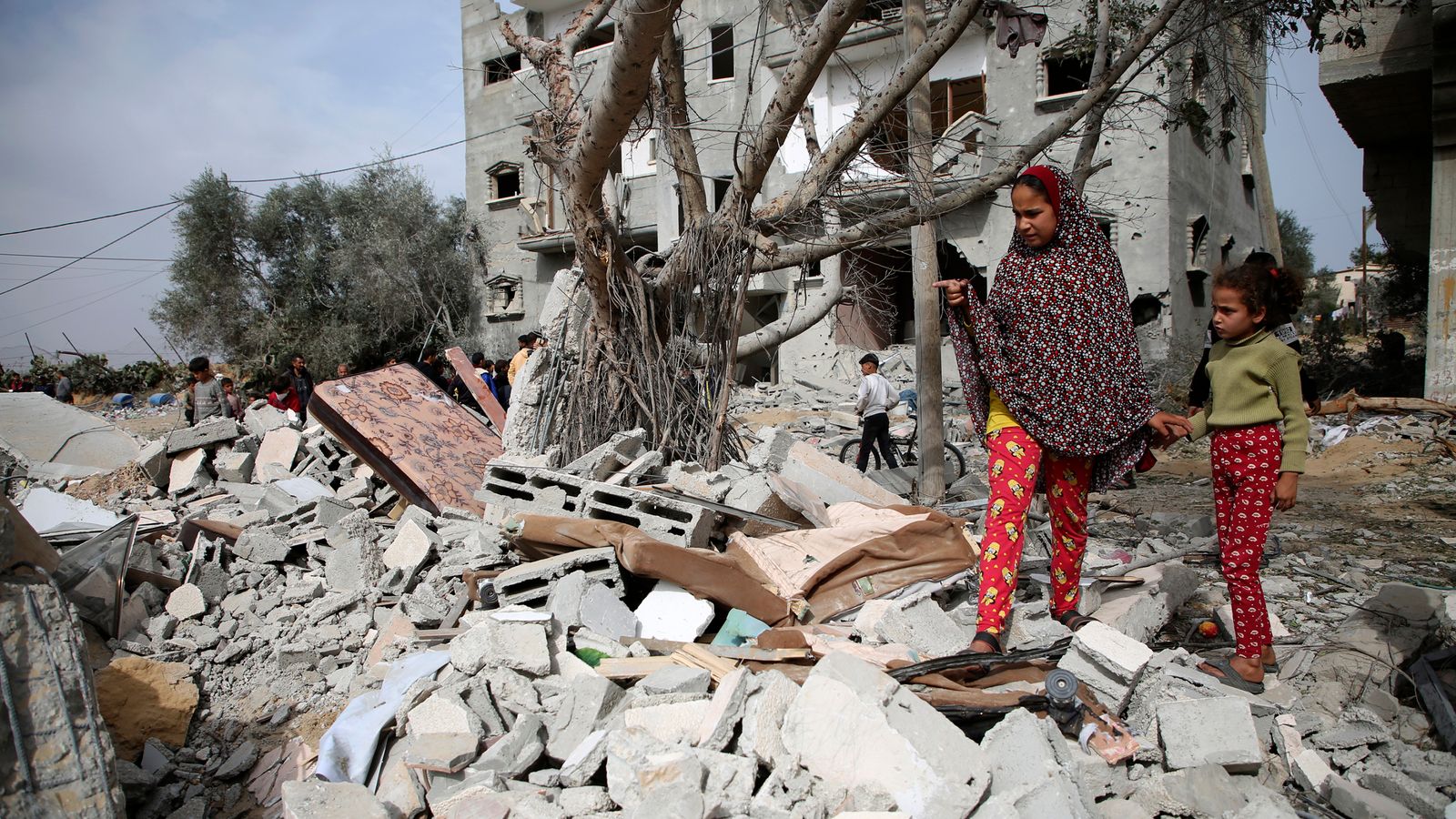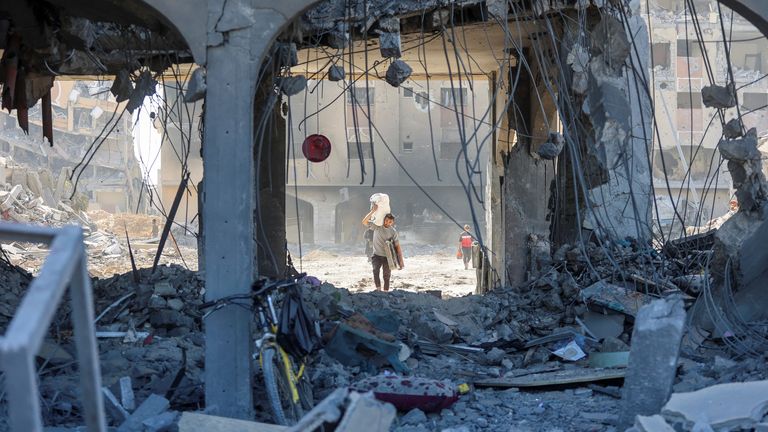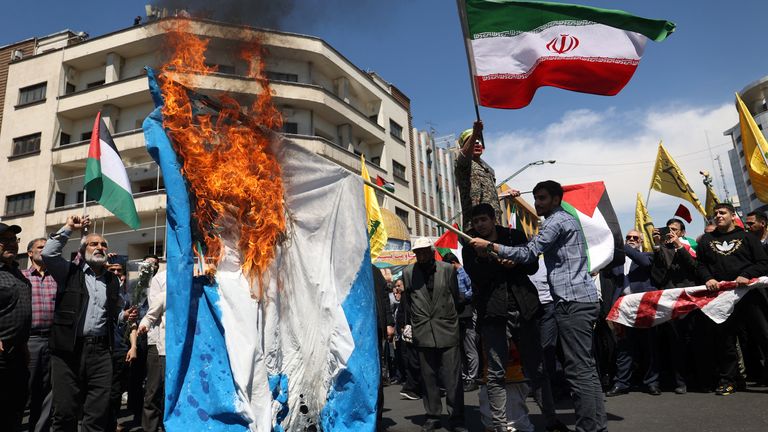Israel has withdrawn almost all of its troops from southern Gaza.
Only one brigade remains in Khan Younis and is tasked with securing the ‘Netzarim corridor’ that divides the Gaza Strip, according to a report from The Times of Israel.
The move comes six months to the day that Hamas killed more than 1,100 Israelis, prompting the war in Gaza.
The pullout of troops is linked to ongoing negotiations with Hamas over Israeli hostages and Prime Minister Benjamin Netanyahu is “desperate” for a ceasefire deal, a senior source in the Israeli government told Sky’s Middle East correspondent Alistair Bunkall.
The killings of seven Gaza aid workers in an Israeli airstrike “changed everything”, the source added.
Plans for Rafah offensive
Israel had planned a ground invasion of the southern city of Rafah, claiming it is a hive of Hamas’s remaining strongholds. More than half of Gaza’s 2.3 million population are taking refuge in the city.
Israel had been warned of “disastrous consequences” if it went ahead with the ground invasion but insisted it would.
On Sunday morning, following the withdrawal of the troops, Sky News spoke to Israeli government spokesperson Avi Hyman, who said Benjamin Netanyahu would “absolutely” go ahead with a ground invasion of Rafah.
“If we don’t go ahead with Rafah, we lose the war,” he said.
A new phase of war
“We’re certainly entering a new phase of this war,” says Sky’s Middle East correspondent Alistair Bunkall.
“It looks like, as a lot of people have been putting pressure on Israel to do for some time now, it will move to more of a counter-terrorism strategy.
“So rather than a full blown, land occupation within Gaza, it will be operations that are based on intelligence going into certain areas.”
Israeli embassies ‘unsafe’
Meanwhile, an Iranian official says none of Israel’s embassies are safe any more, after a suspected Israeli strike on the Iran consulate in Damascus.
Twenty-eight Israeli embassies around the world temporarily closed on Friday due to fears of reprisal from Iran, the official said.
Read more:
US on high alert over threat of Iranian retaliation
Royal Navy ship to be deployed in Gaza aid effort
Yahya Rahim Safavi, an adviser to the Supreme Leader, said the attack was a “violation of international laws”.
Seven members of Iran’s Revolutionary Guard were killed in the 1 April attack, with Iran vowing retaliation.
Iran’s semi-official ISNA news agency also published a graphic on Sunday that it said showcased nine different types of Iranian missiles it says are capable of hitting Israel.
US officials said on Friday they were on high alert about the possibility of a significant Iranian strike on targets inside Israel.


